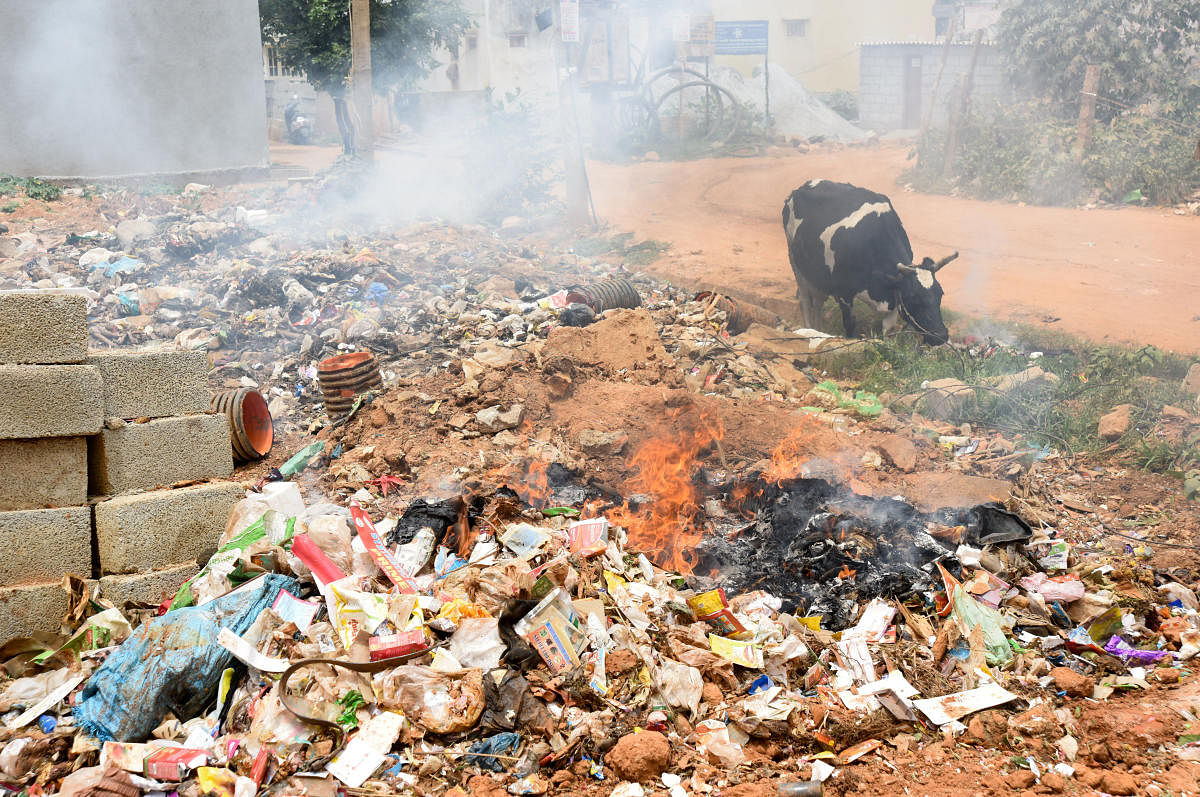
Karnataka Chief Minister B S Yediyurappa has ordered an inquiry into the huge expenditure incurred by BBMP on solid waste management (SWM) projects that have yielded little or no result. In two separate orders, the government has sought a report on the Rs 1,067 crore spent on SWM every year and the construction of seven SWM units at a cost of Rs 410 crore, most of which are not operational. The garbage mafia is so deeply entrenched in the city that no chief minister in the past has been able to break its back. Yediyurappa’s predecessor H D Kumaraswamy had openly conceded, “The garbage mafia is responsible for the city’s trash problems. There are many remedies to solve the problem, but the mafia will not allow it.” Even some proposals mooted by Kumaraswamy when he was chief minister in 2006-07 remain unimplemented to date. Such is the might of the mafia.
Garbage collection, transportation and disposal is big money, with MLAs, corporators, officers and contractors forming a coterie to share the spoils. Though the racket has been flourishing unchecked for many decades, it is only recently that the government cracked the whip, following extensive investigations spanning over one-and-a-half years by BBMP Joint Commissioner Sarfaraz Khan. A raid by the anti-corruption bureau at the BBMP’s zonal office at Bommanahalli revealed that fake salary bills amounting to Rs 500 crore were raised towards non-existent pourakarmikas. Provident Fund, Employee State Insurance and transportation funds to the tune of Rs 384 crore were also diverted. With the introduction of biometrics, it was found that across Bengaluru, bills were claimed for 45,000 pourakarmikas while the actual number on the field was only 15,000. Khan’s investigation also revealed that only a small number of tippers were deployed on alternate days while bills were claimed for the whole month. Thus, the scale of the scandal can be easily imagined.
According to a study by B P Naveen and P V Sivapullaiah of the Department of Civil Engineering, Indian Institute of Science, garbage generation, which is currently 5,000 tonnes per day, is set to reach alarming proportions due to the growing population of the city. Bengaluru prides itself as the IT capital of India, but BBMP is yet to evolve a scientific method of garbage collection and disposal. Most municipal solid waste is still being dumped in landfills, posing health risks to the residents around them and contaminating ground and surface water. Though the inquiry ordered by Yediyurappa is only a baby step, the chief minister will be rendering his single biggest service to Bengaluru if he succeeds in reining in the mafia and finds a permanent solution to the city’s garbage problem.